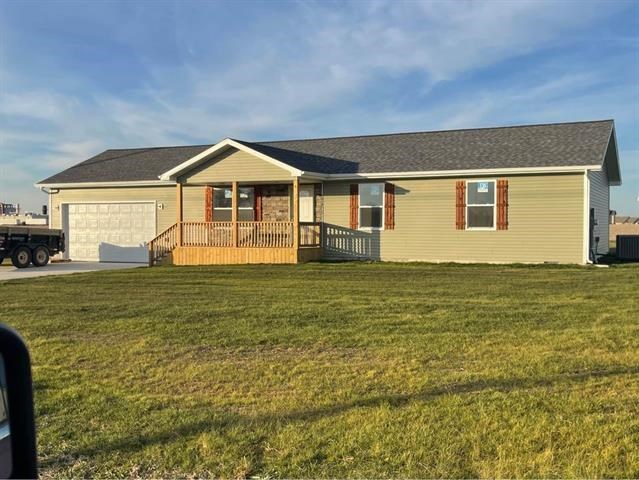
A growing debate is raging over whether you need a college education to become a real estate agent. While many believe that a degree can help you make more money and work harder, others argue that it will take more of your time. While both sides of this debate are correct in some ways, there are also benefits to getting a college degree that may outweigh the cost and time.
Real estate is a competitive industry. The more educated you can be, the better your chances of succeeding in this field. A degree can give you a better understanding of the business and help you make more informed decisions about properties, mortgages, interest rates and other aspects of buying or selling a home.
A college degree in realty agent can help you prepare for a career as an appraiser/loan officer, property manager, or broker. These positions require a bachelor's level of education and extensive knowledge of the real estate market.

You'll learn how to research and analyze the market in order to create a strategy that your clients will be more likely to find their next home. This knowledge will allow you to be a more effective real estate agent. It will increase your sales, and keep your clients returning for your advice.
You can find specific programs at colleges that offer majors in real estate. A degree in communications, for example, might be a good option if you are interested marketing and sales. Another option could be a degree in finance which teaches you how manage and grow businesses.
The real estate industry is highly mobile, which means that you can work from anywhere in the country. This is a huge advantage for some people who don't want their work to be restricted to one place.
Regardless of your choice, it's important to remember that the only way to make money in this profession is to sell homes. It is important to work hard and build a network of buyers and sellers to be an outstanding agent.

Many paperwork are required of real estate agents. You'll need to take photos of homes, write offers, and record information about them.
You need to be familiar with the laws that apply to real estate in order for you provide reliable and accurate information to your clients. It is important to understand the regulations in your state and any changes that may affect your clients.
A few courses are required before you can obtain your agent license. In most cases, you must pass a test. These courses are called prelicense courses and cover topics like working with clients, negotiating, closing a deal and following real estate law.
FAQ
How much money will I get for my home?
It depends on many factors such as the condition of the home and how long it has been on the marketplace. Zillow.com shows that the average home sells for $203,000 in the US. This
What are the 3 most important considerations when buying a property?
Location, price and size are the three most important aspects to consider when purchasing any type of home. Location is the location you choose to live. Price is the price you're willing pay for the property. Size refers the area you need.
Is it possible for a house to be sold quickly?
You may be able to sell your house quickly if you intend to move out of the current residence in the next few weeks. You should be aware of some things before you make this move. First, find a buyer for your house and then negotiate a contract. The second step is to prepare your house for selling. Third, advertise your property. Finally, you need to accept offers made to you.
Statistics
- 10 years ago, homeownership was nearly 70%. (fortunebuilders.com)
- This seems to be a more popular trend as the U.S. Census Bureau reports the homeownership rate was around 65% last year. (fortunebuilders.com)
- Some experts hypothesize that rates will hit five percent by the second half of 2018, but there has been no official confirmation one way or the other. (fortunebuilders.com)
- Over the past year, mortgage rates have hovered between 3.9 and 4.5 percent—a less significant increase. (fortunebuilders.com)
- This means that all of your housing-related expenses each month do not exceed 43% of your monthly income. (fortunebuilders.com)
External Links
How To
How to Manage a Property Rental
Although renting your home is a great way of making extra money, there are many things you should consider before you make a decision. These tips will help you manage your rental property and show you the things to consider before renting your home.
This is the place to start if you are thinking about renting out your home.
-
What do I need to consider first? Before you decide if your house should be rented out, you need to examine your finances. If you have debts, such as credit card bills or mortgage payments, you may not be able to afford to pay someone else to live in your home while you're away. Your budget should be reviewed - you may not have enough money to cover your monthly expenses like rent, utilities, insurance, and so on. You might find it not worth it.
-
How much is it to rent my home? Many factors go into calculating the amount you could charge for letting your home. These factors include the location, size and condition of your home, as well as season. Remember that prices can vary depending on where your live so you shouldn't expect to receive the same rate anywhere. The average market price for renting a one-bedroom flat in London is PS1,400 per month, according to Rightmove. This means that if you rent out your entire home, you'd earn around PS2,800 a year. Although this is quite a high income, you can probably make a lot more if you rent out a smaller portion of your home.
-
Is this worth it? You should always take risks when doing something new. But, if it increases your income, why not try it? Make sure that you fully understand the terms of any contract before you sign it. Renting your home won't just mean spending more time away from your family; you'll also need to keep up with maintenance costs, pay for repairs and keep the place clean. These are important issues to consider before you sign up.
-
Are there any benefits? It's clear that renting out your home is expensive. But, you want to look at the potential benefits. There are plenty of reasons to rent out your home: you could use the money to pay off debt, invest in a holiday, save for a rainy day, or simply enjoy having a break from your everyday life. It's more fun than working every day, regardless of what you choose. And if you plan ahead, you could even turn to rent into a full-time job.
-
How can I find tenants Once you've made the decision that you want your property to be rented out, you must advertise it correctly. Listing your property online through websites like Rightmove or Zoopla is a good place to start. Once potential tenants reach out to you, schedule an interview. This will help you evaluate their suitability as well as ensure that they are financially secure enough to live in your home.
-
How do I ensure I am covered? If you fear that your home will be left empty, you need to ensure your home is protected against theft, damage, or fire. Your landlord will require you to insure your house. You can also do this directly with an insurance company. Your landlord will usually require you to add them as additional insured, which means they'll cover damages caused to your property when you're present. If you are not registered with UK insurers or if your landlord lives abroad, however, this does not apply. In this case, you'll need to register with an international insurer.
-
If you work outside of your home, it might seem like you don't have enough money to spend hours looking for tenants. However, it is important that you advertise your property in the best way possible. A professional-looking website is essential. You can also post ads online in local newspapers or magazines. It is also necessary to create a complete application form and give references. While some prefer to do all the work themselves, others hire professionals who can handle most of it. In either case, be prepared to answer any questions that may arise during interviews.
-
What happens once I find my tenant You will need to notify your tenant about any changes you make, such as changing moving dates, if you have a lease. You can negotiate details such as the deposit and length of stay. While you might get paid when the tenancy is over, utilities are still a cost that must be paid.
-
How do you collect rent? You will need to verify that your tenant has actually paid the rent when it comes time to collect it. You'll need remind them about their obligations if they have not. You can subtract any outstanding rent payments before sending them a final check. If you're having difficulty getting hold of your tenant you can always call police. They won't normally evict someone unless there's been a breach of contract, but they can issue a warrant if necessary.
-
How can I avoid potential problems? Although renting your home is a lucrative venture, it is also important to be safe. Make sure you have carbon monoxide detectors installed and security cameras installed. Make sure your neighbors have given you permission to leave your property unlocked overnight and that you have enough insurance. You must also make sure that strangers are not allowed to enter your house, even when they claim they're moving in the next door.